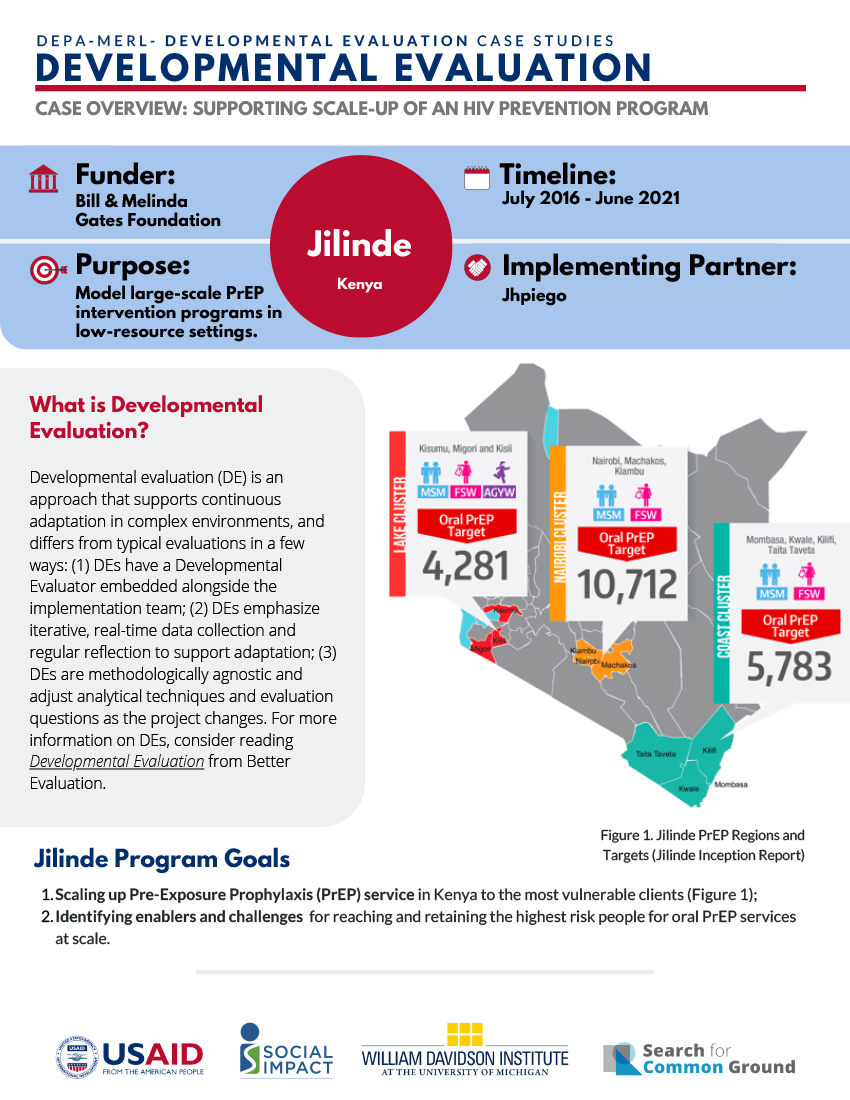- What We Do
- Agriculture and Food Security
- Democracy, Human Rights and Governance
- Economic Growth and Trade
- Education
- Environment and Global Climate Change
- Gender Equality and Women's Empowerment
- Global Health
- Humanitarian Assistance
- Transformation at USAID
- Water and Sanitation
- Working in Crises and Conflict
- U.S. Global Development Lab
Speeches Shim
What is Developmental Evaluation?
Developmental evaluation (DE) is an approach that supports continuous adaptation in complex environments, and differs from typical evaluations in a few ways: (1) DEs have a Developmental Evaluator embedded alongside the implementation team; (2) DEs emphasize iterative, real-time data collection and regular reflection to support adaptation; (3) DEs are methodologically agnostic and adjust analytical techniques and evaluation questions as the project changes. For more information on DEs, consider reading Developmental Evaluation from Better Evaluation.
Jilinde Program Goals
- Scaling up Pre-Exposure Prophylaxis (PrEP) service in Kenya to the most vulnerable clients (Figure 1);
- Identifying enablers and challenges for reaching and retaining the highest risk people for oral PrEP services at scale.
Why DE?
Jilinde’s goal of scale comes with several unknown variables including recruitment and retention of high-risk populations, clinicians’ comfort prescribing PrEP, and the capacity of current supply and distribution methods. The Gates Foundation encourages a flexible project structure that can accommodate evidence-based changes as project challenges arise.


Comment
Make a general inquiry or suggest an improvement.